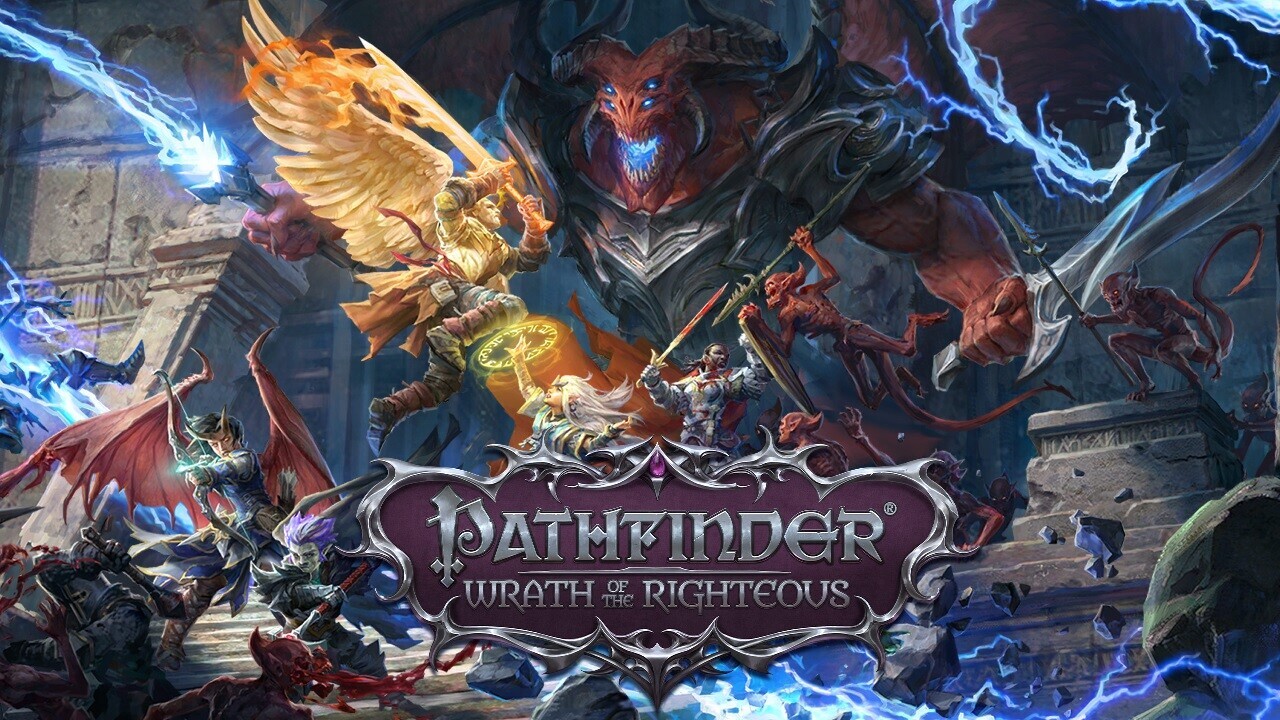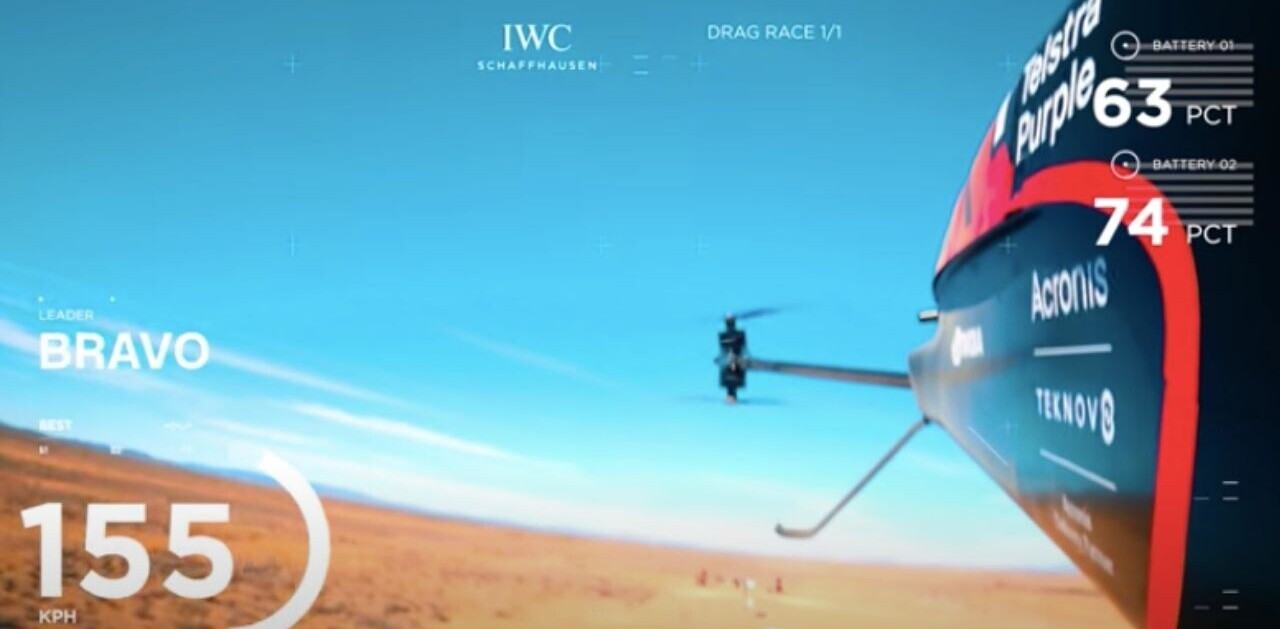
Wrath of the Righteous is Owlcat Game’s latest attempt to translate the Pathfinder tabletop roleplaying experience into a video game. It’s deep, ambitious, and lofty in ways that defy its humble Kickstarter origins.
The play experience can be a bit incongruous and there’s much more here for story lovers and lore seekers than there is for min-max players. But Wrath comes closer to scratching the pen and paper itch than any other CRPG I’ve played.
For the uninitiated, Pathfinder is a tabletop game that spawned from Dungeons and Dragons’ rules to become its own retro-style RPG juggernaut.
Players are tasked with saving the world from a destructive force hellbent on ruining everything. Don’t worry, there aren’t any spoilers ahead.
Wrath is a follow-up to Owlcat’s Pathfinder: Kingmaker, but the stories are unrelated (as far as I can tell, anyway) so you shouldn’t need to play the first game to understand what’s going on.
Gameplay, your way
It is joyously apparent that Owlcat’s focused on striking the perfect balance between play styles.
If you’re a fan of the way tabletop games are paced, where decision-making and execution are accounted for in separate processes, you’re in luck. Wrath has an excellent turn-based combat system that goes deeper than most of its contemporaries.
And if you prefer frenetic fights than end in seconds, you can always switch turn-based combat off and play the game in a manner more resembling Diablo’s real-time hack-n-slash fest.
Or you can opt for a hybrid approach where you pause to issue orders to your party and then unpause to watch them play out.
I found a nice groove where I’d use real-time combat during random encounters and run-ins with fairly non-threatening enemies and then switch to turn-based whenever a fight got serious.

This wasn’t because I felt one system was more suited for challenging combat than another, it was simply because I really enjoy the turn-based combat in this game.
We’ve seen this style of combat a hundred times since the acclaimed Baldur’s Gate series left an indelible mark on the CRPG genre. But Owlcat gets a few things right here that, in my opinion, put Wrath head and shoulders above the competition when it comes to aping the source material.
Playing on the bog standard difficulty, I never felt like there was a “right” way to win a battle or a particular combination of characters I was “supposed” to use for a fight.
Every engagement felt like a sandbox for me and my party to play in thanks to the sheer (dare I say ridiculous) number of options available at any given moment.
Give me all the options
There’s nothing else out there quite like Wrath. Not even it’s predecessor, Kingmaker, even really comes close to realizing the number possible things you can do with a party of characters in a roleplaying game.
Wrath adds 5 more starting classes to choose from than Kingmaker (bringing the total up to 25), and there are hundreds of options within each that allow for granular customization. And, once you start the game, there’s all-new Mythic Paths and prestige classes with which to further customize your character.
The game’s epic story coupled with the fact you can’t customize your party, does make it feel like playing a melee tank or other high-constitution character is the smartest move – it’ll certainly make the early stages less of a challenge for new players. But, I rolled up a rogue and ended up being a total badass from the get go despite aiming to be more of a trickster rogue than DPS dealer.

Playing on the normal difficulty level leaves plenty of room for roleplay, meaning there’s no reason for you not to try out a support bard or glass cannon wizard if that’s what you really want to be.
However, Wrath is a game that’s perfectly content to let you screw up your character. It’ll issue warnings before you select an option that isn’t meant for your class, but it’ll still let you take a meaningless feat if you insist.
Luckily, you’re not punished for experimenting. You can respec your characters in game.
The story and characters
While you can’t create a custom party, you can mix and match companions from a diverse group you’ll meet along your journeys. And the pre-made party members are among some of the most interesting sidekicks I’ve seen in a CRPG.
I won’t spoil anything but, for the first time ever in a RPG, I actually asked one of the NPCs I’d picked up for my group to leave. I didn’t like them or their attitude and we absolutely weren’t going to work out.
I wasn’t mad. As a player, I really enjoyed this character. But my character’s outlook on life was incompatible with theirs, so I ousted them. It was a rare instance where, in a single-player game, I made an arguably bad tactical decision for roleplaying purposes.
The companion characters are written with a depth that tells me the people responsible for them are almost certainly hardcore TTRGPers who know what it’s like to get to know a character as they level up and experience the world.

And the story, wow, is there a lot of it. There’s books and notes scattered throughout the game world, every NPC seems to have a book’s worth of info to give you and the game pushes full-screen pages of info between chapters, cut-scenes, and events. There’s a lot going on in the world of Wrath.
In this way, it was a tale of two games merged perfectly. I enjoy a good bit of lore, but I’m not the kind of player who reads every entry in the in-game encyclopedia during my first play through. As long as I know what’s going on in my character’s current life, I’m good to go.
But I am the kind of player who can spend two or three hours poring over every single detail in the character creation suite. I obsess over leveling up and view every magical item obtained or experience point rewarded as a strategic opportunity to define my character.
Wrath rewards that kind of mentality. It lets me fast-forward through boring fights by switching turn-based combat off, but makes it dead-simple to turn it back on at any point, even during the middle of combat.
And leveling up happens faster than a typical MMO but slower than your average CRPG. This allows me to experience my character at each early level without ultimately feeling like I’m wallowing in weakness.
Graphics, sounds, bugs
The game looks, feels, and sounds great. I won’t try to oversell the graphics, they do a great job of representing what’s going on even at basic 1080p resolutions, but this is a Baldur’s Gate-style CRPG and there’s only so much you can do with so much game world to represent and so many systems in play.
Music is a high-point, with each track seemingly adding gravitas to what’s going on in the game. Sound effects and voice-acting are good – sometimes just okay, sometimes great.
And, miraculously, I didn’t experience any bugs. The game gets pretty choppy on my old laptop during the transition to and from cut scenes, but other wise I had no issues. However, it does appear that many PC gamers are currently reporting crashing problems, so it’s possible I’m just lucky.
Complaint department
There were times when, despite my earnest attention to detail, I had no clue what was going on. It can be difficult to find the exact spot you need to stand or hover your mouse pointer over to trigger a search icon, and sometimes the sheer amount of information the NPCs gave me started turning into overload.
Also, for a game with a lot of options the choices weren’t exactly as meaningful as I’d hoped. If you’re planning on playing an evil character, for example, you’ll pretty much be relegated to choosing the “Attack: you don’t deserve to live” option in dialogues.
You can choose to kill a lot of people, it doesn’t really matter, and your lawful good followers don’t really care.
That’s the biggest problem Wrath suffers from. There’s so much information, so much to do, and so many ways to do it that there’s no real way to make the experience feel like a story that was only meant for me. It’s a step closer to the sandbox I want, I just wish the DM knew me a little better.
Verdict
Pathfinder: Wrath of the Righteous is a fantastic game. Owlcat rolled a natural 20 on a called strike with this one and I can’t wait for the eventual expansions to arrive.
Now, if you’ll excuse me, it’s time to go roll up some new characters!
You can pick up Pathfinder: Wrath of the Righteous now on PC. It launches on consoles on 1 March, 2022.
Get the TNW newsletter
Get the most important tech news in your inbox each week.




